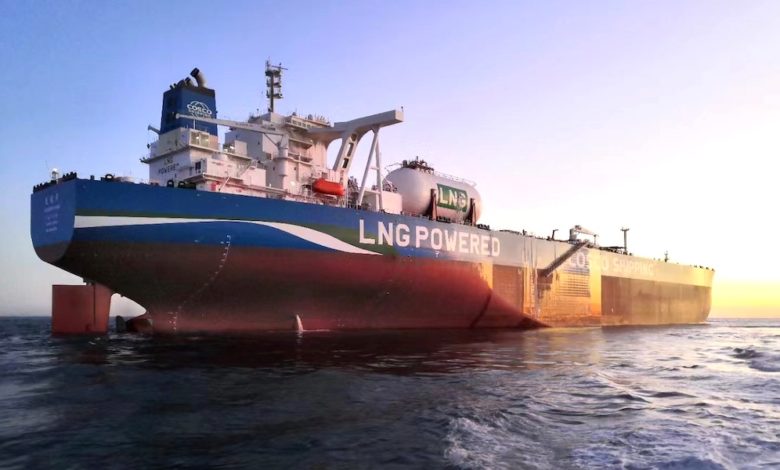LNG as shipping’s alternative fuel in crosshairs again with European court challenge

Five NGOs – Fossielvrij, Protect our Winters, Dryade, CLAW, and Opportunity Green – have launched a legal challenge against the European Commission, requesting it to review its green investment rules on aviation and shipping.
In Tuesday’s press release, Opportunity Green said that the EU Taxonomy should act as the standard for informing ethical and sustainable investments. It exists to provide a verified list of green investments to companies, investors, and policymakers while providing huge amounts of private finance to activities that deliver a fair and green transition.
The NGOs argue that, under the shipping criteria, LNG-powered ships could be taxonomy compliant, despite LNG being a fossil fuel which produces methane. According to the statement, there is no scientific evidence for these new criteria, and that they could potentially jeopardise climate mitigation efforts and the EU’s legally binding climate targets.
The new aviation criteria also have weak fuel efficiency standards, Opportunity Green claimed, or are certified to fly on low levels of sustainable aviation fuels, and as such, may be taxonomy compliant.
“Given the expected lifespans of planes and ships range from 20-50 years, this means that the Taxonomy could drive investment to planes and ships that pollute the air and seas for decades to come, making a mockery of the urgent need to decarbonise all sectors,” the NGOs stated.
This challenge is the latest in a series of legal challenges that have been filed against the Commission for bringing fossil fuel-based activities into the Taxonomy under the label of transition activities. The NGOs added that this would just be the first step in the challenge which may lead to court action before the European Court of Justice if the Commission does not address the legal issues raised.
“Allowing shipping and aviation to be included in the Taxonomy [allows the EU to sanction] murky solutions that don’t support a green transition to net zero,” Elias Van Marcke of Dryade added.
The chilled fuel has its advocates and detractors. One group tout the benefits of LNG in considerably reducing sulphur and particulate pollution and cutting CO2 emissions during fuel combustion, hence arguing that LNG is the only transition fuel available at scale today for reducing shipping CO2 emissions. However, a growing body of literature shows that upstream methane leakage and high methane slip of some LNG-powered engines more than offset the CO2 emission benefits of LNG.
LNG as shipping’s go-to alternative fuel has come under repeated attacks in recent years with Say No To LNG taking its turn last year in attempting to debunk the “myth” that LNG is a climate-friendly marine fuel alternative.
Other names joining the detractor’s team include some giant names like the World Bank which two years ago published a maritime decarbonisation report in which it specifically recommended countries pull back from investing in further LNG bunkering infrastructure.
London’s UCL Energy Institute said in a report in 2022 that as much as $850bn of tonnage is at risk of being stranded by 2030 if the shipping sector continues investing in LNG-capable ships. Similarly, the Intergovernmental Panel on Climate Change has been highlighting of late in far greater detail the harmful effects methane is having on the planet.
Peter Keller, chairman of lobby group SEA-LNG, wrote in a Splash article from October 2023 that the current debate which seems to be focused on “my solution versus your solution,” rhetoric was not productive.
“The industry needs to recognise that not all fuels are created equal. A more thoughtful, fact-based approach is needed where isolated bunkerings, political endorsements, and catchy sales-type soundbites are not confused with future decarbonisation strategies that are practical, financially supportable, and realistic,” Keller wrote.
